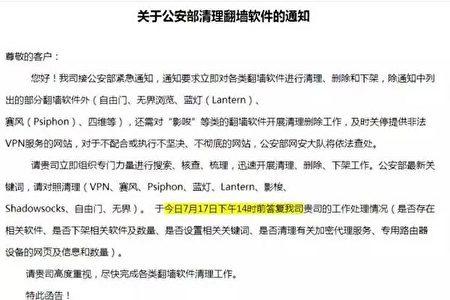The Chinese regime is now seeking to shut down the programs that have kept open a window to the world for China’s internet users, but software developers and internet users in China are working to develop solutions that will continue to undermine the regime’s censorship.
Virtual private networks (VPNs) have been widely used by internet users in China to circumvent the Great Firewall, the nickname for the sophisticated system that the Chinese regime built to censor and monitor online traffic in and out of China. By one estimate, around 30 percent, or about 200 million out of the China’s 700 million netizens, have used VPNs to access foreign websites or online contents that would otherwise be blocked.
By using a VPN, internet users in China can fool the Great Firewall, causing it to determine that they are located outside China, which enables them to connect to the web undetected and hence uncensored. The use of a VPN however, often causes users extra costs and inconvenience. It may also expose their personal information to the VPN’s servers outside China.
The Chinese regime has made numerous attempts in the past to crackdown on the use of VPNs. Due to the nature of VPNs, however, such crackdowns often only affect the most popular VPN providers, while determined users would eventually find a new VPN to work around the blockage.
Last week, China’s Ministry of Public Security issued a nationwide order to all local censorship and law enforcement agencies to start a new crackdown on the use of the VPN tool. The order specifically targeted a number of popular circumvention software programs, such as Freegate, Ultrasurf, Lantern, and Psiphon, and labelled them as being developed by “hostile foreign forces.”





